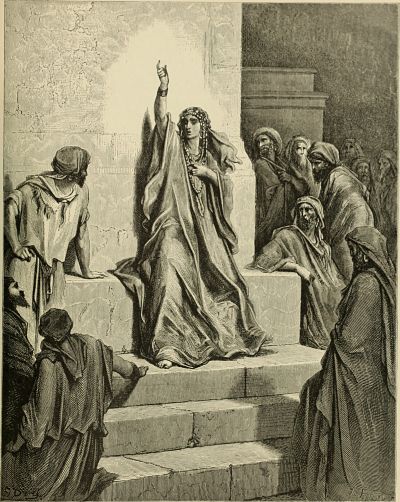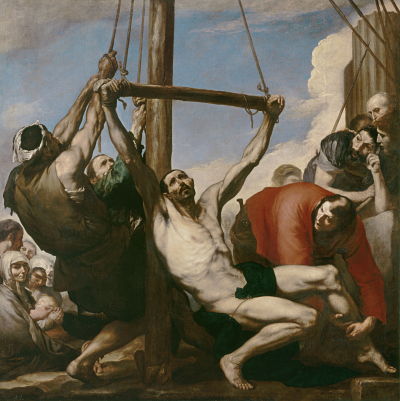Die Once, Face Judgment
- Details
- Category: Salvation

Theme Text – “...people are destined to die once, and after that to face judgment…” Hebrews 9:27.
The Problem
1) What is the popular interpretation of the theme text Hebrews 9:27?
When most people read this text, they just take it to mean that the present life of every human is some kind of test that each of us undergoes, at the end of which we die and then face God to be sentenced with reward or punishment based on our performance.
2) Is there any problem with that interpretation?
When we look at this understanding through a scriptural lens, we notice some absurdities. The Bible declares death itself as a sentence/punishment that all of us face.
- "The wages of the righteous is life, but the earnings of the wicked are sin and death." Proverbs 10:16
- "For the wages of sin is death." Romans 6:23.
Thus, death is categorized as the opposite of life and deemed as the inevitable punishment/sentence that is in store for all of us because we genetically inherit sin and death from our father Adam.
- "In Adam, all die." 1Corinthians 15:22.
Yes, all of us at some point die - We live no more. The Scriptures tell us that we die, fall into an unconscious sleep and cease to exist (Psalm 146:4; 1Kings 2:10; 11:43; John 11:11; Acts 7:60). That’s our punishment.
And that throws a wrench in the theory that we would face yet another sentencing decision right after we die. Haven’t we all been sentenced to death already?
3) What about the reward or punishment for accepting or rejecting Jesus in this life?
There are some who claim that all the sleeping dead are to be raised back alive just to be immediately thrown into heaven or hell based on whether they had accepted Jesus or not in their present lives. This theory poses a different set of problems:
- There have been billions of people who have been born on the Earth, lived their whole lives and died, never having even heard once about a person named Jesus. Will they be all punished for no fault of theirs then? Some claim such people will get a free pass to heaven because nobody had told them about Jesus. If that kind of a free pass is available, wouldn’t it mean a person is rather better off if he or she never hears about Jesus at all?
- The other problem this theory faces is a set of startling statements Jesus himself made. He repeatedly made it clear that he intentionally hides his truths from being revealed to all the people except those whom he has chosen.
- The disciples came to Jesus and asked, “Why do you speak to the people in parables?” He replied, “Because the knowledge of the secrets of the kingdom of heaven has been given to you, but not to them. This is why I speak to them in parables: “Though seeing, they do not see; though hearing, they do not hear or understand." Matthew 13:10-13.
- Jesus said, “You did not choose me, but I chose you.” “Few are chosen.” John 15:16, Matthew 22:14.
Why would Jesus punish people in the judgment for something he himself deliberately hid from them? He’s not an unfair judge, is he?
1. What is Judgment Biblically?
In order to understand Hebrews 9:27 and resolve the absurdities we found earlier, let us use one of the Golden Rules of bible study: “Scripture interprets Scripture”. When we make use of that rule, and let the Scriptures interpret Hebrews 9:27 instead of our limited prejudiced interpretations, we end up finding profound truths.
The first question we find ourselves asking is what exactly is Judgment according to the Scriptures. Usually the word “Judgment Day” plays in human minds as images of a 24-hour period where people are given a verdict whether they are good or bad, and then sent to their respective rewards or punishments. But is that what the Scriptures depict?
What is biblical “Judgment”?
- The New Testament Greek word rendered in Hebrews 9:27 as “Judgment” is KRISIS whose Old Testament Hebrew counterpart is MISHPAT.

- Both these root words for “Judgment” are used across the Bible to usually mean a time of reign/rule where rulers (“judges”) redeem the people from wickedness/evil forces, rule over them and render justice by teaching them righteousness, and evaluate/sift them through a sieve while the subjects undergo learning.
For instance, when God appointed Judges for Israel, it was for this very purpose (Judges 2:16-19).
- And Isaiah predicts the same Judgment to come upon all the people of the earth.
"When your judgments come upon the earth, the people of the world learn righteousness." Isaiah 26:9.
Now, this is all completely different from the popular understanding of what Judgment means. As Isaiah declares, God’s Judgment is not just sentencing someone, but is rather a period of teaching – usually administered by ruling judges. There’s no sentencing before someone is taught what’s right and wrong. Biblical Judgment is a time of learning followed by sentencing.
2. Death & Judgment of the Believers
According to the Scriptures, it is the believers who are “judged” first.
- "For it is time for judgment to begin with God’s household." 1Peter 4:17.
Let us now dig into how Hebrews 9:27 applies to the believers. What does it say?
“…destined to die once, and after that to face judgment…”
So now let us find out when believers die and when they get their learning period of judgment.
1) When do the believers “die once”?
A person can be categorized as a true believer only if he or she takes the baptismal oath according to the New Testament. And the Scriptures emphasize that the believers symbolically die during their baptism.
- "We were therefore buried with him through baptism into death." Romans 6:4.
- "For you [the believer] died [at baptism], and your life is now hidden with Christ in God." Colossians 3:3.
Yes, baptism includes a death and a resurrection. And that is when the believers metaphorically “die once”.
2) When do the believers “face judgment” and how?
As Hebrews 9:27 says, when the believers symbolically “die once” in their baptism, they have to face a “judgment” in their life of faith that commences right after their symbolic resurrection. Yes, their present lifetimes on earth is when the believers face judgment.
As we saw earlier, this means the believers have to go through “a time of learning” in their present lifetimes, because that’s what biblical judgment is.
- God teaches the believers discipline once they start their walk of faith.
"God disciplines us [believers] for our good." Hebrews 12:10.
- Jesus himself declares that his believers need to undergo a tough trial
 and dedicate their present lives to suffer for his gospel:
and dedicate their present lives to suffer for his gospel:
“Whoever wants to be my disciple must deny themselves and take up their cross and follow me. For whoever wants to save their life will lose it, but whoever loses their life for me and for the gospel will save it." Mark 8:34-35.
- Paul assures the believers that their sufferings for Christ’s gospel teaches them perseverance and makes them stronger under hostile conditions:
"We also glory in our sufferings, because we know that suffering produces perseverance." Romans 5:3.
This is indeed the judgment of the believers. They are “judged” i.e. taught obedience to God and disciplined in their present lives through their suffering for the gospel of Christ. Their present life is their “time of learning” i.e. judgment.
3) What do the believers get if they learn obedience to God under this judgment and persevere till the end?
- Jesus promises them something unique - "To the one who is victorious [in his believing life] and does my will to the end, I will give authority over the nations — that one ‘will rule them with an iron scepter and will dash them to pieces like pottery’—just as I have received authority from my Father." Revelation 2:26-27.
- The Pastoral epistle assures the same – “If we [the believers] endure, we will also reign with him [Jesus].” 2Timothy 2:12.
Yes, the believers who prove themselves worthy in their time of learning (judgment) in their current lives, will get to rule with Christ in his Kingdom after the resurrection.
3. Death & Judgment of the Non-believers
1) When do the non-believers “die once”?
Non-believers do not get baptized, at least not the biblical oath version of it. So, they do not die to face judgment in their present life, like believers do. Non-believers rather “die once” only during the end of their lives. This means, unlike the believers, non-believers do not face judgment (“a time of learning”) in their present lives.
2) When do the non-believers “face judgment” and how?
As Hebrews 9:27 says, when the non-believers “die once” at the end of their lives, they have to face a “judgment”. And obviously this commences after their resurrection when Jesus returns.
- Jesus said, "Do not marvel at this; for an hour is coming, in which all who are in the tombs will hear His voice, and will come forth; those who did the good deeds [the believers who had already gone through judgment in their lives] to a resurrection of life, those who committed the evil deeds
[the non-believers] to a resurrection of judgment." John 5:28-29.
This means the resurrected unbelievers have to go through “a time of learning” right after their resurrection, because that’s what biblical judgment is.
3) Who will teach righteousness to the resurrected non-believers during their “time of learning” in the judgment?
Jesus and his risen-and-proven-worthy believers shall rule/judge over the resurrected unbelievers for a thousand-year reign and teach them righteousness.
- “Blessed and holy are those who share in the first resurrection. The second death has no power over them, but they will be priests of God and of Christ and will reign with him for a thousand years.” Revelation 20:6. And their reign will not be without a purpose. It shall be to judge/teach the resurrected nations of the planet.
- "To the one who is victorious and does my will to the end, I will give authority over the nations [resurrected mankind] — that one ‘will rule them with an iron scepter.’” Revelation 2:26-27.
- "Do you not know that the Lord’s people will judge the world?" 1Corinthians 6:2. Yes, the Lord’s people will judge - i.e. will rule, teach, evaluate and sift the world of the resurrected unbelievers in the “time of learning” (judgment) – not unlike what the Judges of the Old Testament used to do with Israel.
Thus, the thousand-year reign that commences on the Earth right after the resurrection is the Judgment (“time of learning”) faced by the unbelievers. In fact, that is their Judgment Day. As the Petrine epistle points out:
- "But do not forget this one thing, dear friends: With the Lord a Day is like a thousand years, and a thousand years are like a day." 2Peter 3:8.
Yes, Judgment Day will not be a 24-hour day but rather shall last a thousand years.
Note: There’s a spurious text in Revelation 20:5 that has been found to be inserted into the Bible in later centuries which says “the rest of the dead did not come to life until the thousand years ended”. Some bible versions mark it within parentheses (Eg. NIV). This odd text is not found in the earliest manuscripts and hence not part of the Bible.
4) What would happen to Satan during the thousand years?
Unlike present times whence Satan rules the world and deceives all mankind preventing them from learning righteousness, he will be locked in prison and rendered inactive during the thousand-year judgment so that the resurrected masses can have an uninterrupted “time of learning”.
- "And I saw an angel coming down out of heaven, having the key to the Abyss and holding in his hand a great chain. He seized the dragon, that ancient serpent, who is the devil, or Satan, and bound him for a thousand years.
He threw him into the Abyss, and locked and sealed it over him, to keep him from deceiving the nations anymore until the thousand years were ended." Rev 20:1-3.
5) What should the non-believers expect under this judgment at the end of the thousand years?
They will be sentenced to either life or death based on their progress throughout the period with a test/evaluation at the end of it.
- At the end of the thousand-year time of learning, Satan shall be released from his prison so that the now-educated masses can be tested, evaluated and sifted.
"He threw him into the Abyss, and locked and sealed it over him, to keep him from deceiving the nations anymore until the thousand years were ended. After that, he must be set free for a short time." Rev 20:3.
- The liberated Satan will of course try to deceive the people
, and those who still choose to fall for his temptations even after thousand years of learning shall be sentenced to go to their second deaths (Matt 25:46, Rev 21:8). The Bible uses fire / “lake of fire” as a symbol of second death i.e. permanent destruction (Rev 20:14). This death is deemed as their second death because they had already “died once” and been resurrected, and now after failing to reform during the thousand year “time of learning” they shall be sentenced to die permanently with no chance of returning back to life.
- On the other hand, those who prove their obedience to God all the way till this final test not giving in to Satan, will secure the right to live on Earth forever, with mankind finally being restored as rulers of Earth
(Matthew 25:34, 46). They shall inherit the Earth and live harmoniously with each other, essentially the life originally intended for Adam and Eve’s family in the Garden of Eden.
Conclusion
When we study the biblical meaning of judgment, we understand the truly good news of what God’s judgment shall achieve on Earth. And it harmonizes with the following scriptural truths.
- All of us humans inherit our ancestor Adam’s disobedience and the resulting death sentence. That’s why we all die.
- Jesus paid Adam’s ransom (“Life for Life”) on the cross and thereby secured the keys to death and the grave in order to redeem us all from death.
- In the present times, for the last two millennia, starting with the Twelve disciples, Jesus has been “selecting” a group of believers (“the chosen few”) to get them to “die once” symbolically in their baptism and to make them face judgment (“a time of learning”) right away in their present lives so that they can be taught/evaluated/tested/sifted now itself and those who prove themselves worthy till the end can be gifted with a special resurrection.
- Jesus does not “judge” the rest of the world now and plans to make them face judgment (“a time of learning”) only after their real death (“die once”) and resurrection. That’s why he says he even hides his truths from being revealed to them now (Matthew 13:10-13).
- When he returns, he will wake up all mankind from death in two types of resurrections. Those of the first resurrection – the proven (“already judged”) believers – shall get to sit on thrones with Christ and reign/judge over those of the second resurrection (the rest of mankind) in order to teach them righteousness for a thousand-year judgment day.
- Thus, the people of the second resurrection i.e. all non-believers shall face judgment (“time of learning”) only after their resurrection and they will get a fair chance at learning righteousness in life, with Satan being bound during those thousand years.
- At the end of the judgment period, Satan shall be let loose for a short period to test the educated masses and those who prove faithful to Jesus shall secure the right to live on Earth forever, while those who follow Satan’s ways shall be sentenced to death with him.
The thousand-year judgment period will have a glorious purpose and that shall be the rehabilitation and restitution of the resurrected mankind on Earth under the heavenly rulership of Christ and his risen followers. Jesus labeled this judgment period as his Kingdom and termed it as the “Renewal of All Things” (Matthew 19:28) and Peter deemed it as the “Times of Restitution of All Things” (Acts 3:21). As Isaiah promised, God’s judgments will indeed bring justice, peace and love on the Earth.
Amen, let us pray – “Thy kingdom come! Thy will be done on the Earth as it is in the Heavens!